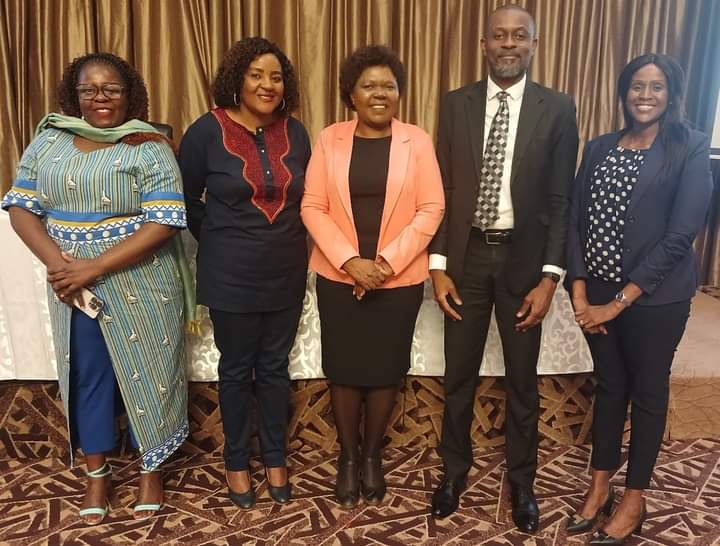|
Getting your Trinity Audio player ready...
|
The Southern African Development Community (SADC) Secretariat joined the Government of the Republic of Zimbabwe at the launch of the Zimbabwe National Action Plan for implementation of the United Nations Security Council Resolution (UNSCR) 1325 on Women, Peace and Security Agenda on the 3rd May 2024 in Harare, Zimbabwe.
The launch was attended by high-level representatives from the Government, SADC Secretariat, the United Nations, Civil Society Organizations, Traditional Leaders’ Organisations, Zimbabwe Defence Force, Zimbabwe Republic Police, gender networks and other stakeholders involved in promoting the role of women as actors in peacebuilding, peacekeeping, post-conflict reconstruction, and in conflict prevention and resolution.
Over 20 years after the adoption of the United Nations Security Council Resolution (UNSCR) 1325, SADC has made laudable efforts to mainstream gender into its peace and security mechanisms and processes to address the specific challenges women and girls face. To effectively implement UNSCR 1325 and its related resolutions, all United Nations and African Union Member States and Regional Economic Communities (RECs) are urged to develop Regional and National Action Plans (RAPs/NAPs). Regional and National Action Plans and Strategies are tools to guide and localise the implementation of the women, peace and security agenda. They articulate how Member States and regional bodies will address the four (4) key pillars of UNSCR 1325, namely, Participation, Prevention, Protection, and Relief and Recovery.
There are currently eight (8) SADC Member States that have developed their National Action Plans (NAPs) on Women, Peace and Security, namely, Angola, Democratic Republic of Congo, Madagascar, Malawi, Mozambique, Namibia, South Africa and Zimbabwe, being the latest.Other SADC Member States are at different stages in in the development of their NAPs.
In launching the Zimbabwe National Actin Plan, Honourable Dr. Jennifer Mhlanga, Deputy Minister of Women Affairs, Community, Small and Medium Enterprises Development (WACSMED), representing Honourable Monica Mutsvangwa, Minister of WACSMED emphasised the commitment of the country in amplifying women’s voices, protecting their rights, and harnessing their invaluable contributions to building a peaceful nation.
Honourable Dr. Jennifer Mhlanga also noted that the NAP acknowledges women’s immense potential as agents of change, peacebuilders, and leaders as well as the need to enhance women’s participation and leadership in decision-making processes related to peace and security.
Representing the SADC Secretariat, Mr Fabrice Kitenge Tunda during his remarks highlighted that despite some challenges in developing and implementing national action plans on Women, Peace and Security in the SADC region, there has been substantial progress in the region in terms of representation and participation of women in some decision-making positions at different levels. SADC Member States have increasingly appointed women in the security sector institutions, including non-traditional ministerial roles such as Defence, Police, Immigration Services and Home Affairs.
Consequently, SADC is committed to supporting Member States in developing and operationalising their National Action Plans as part of efforts to implement the SADC Strategy on Women, Peace and Security (2018-2030), and putting in place measures to ensure equal representation and participation of both men and women in key decision-making positions in conflict resolution, peacebuilding, and peacekeeping.
SOURCE: SADC






